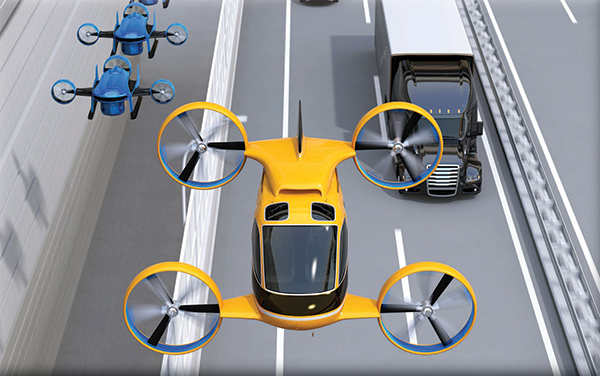
CEC Researchers Receive Funding For Aerial Vehicle & Intelligent Autonomy Range For Experimentation
Five researchers in Mason’s College of Engineering and Computing (CEC) received funding for: “The AVIARE at Eagle Bank Arena: Aerial Vehicle and Intelligent Autonomy Range for Experimentation.” The researchers include: Cameron Nowzari, Associate Professor, Electrical and Computer Engineering; Ningshi Yao, Assistant Professor, Electrical and Computer Engineering; Daigo Shishika, Assistant Professor, Mechanical Engineering; Leigh McCue-Weil, Professor and Department Chair, Mechanical Engineering; and Mary L. Cummings, Professor and Director of the Mason Autonomy and Robotics Center (MARC); First American Bank Chair.
The project aims to harness the power of multi-robot systems in adversarial settings for both their offensive and defensive potential, with the goal of advancing the state-of-the-art multi-robot technologies.
This proposal presents a unique and exciting high-impact project to transform Eagle Bank Arena (a 10,000-seat arena that hosts Mason’s basketball games, concerts, family shows, and commencement ceremonies) into a one-of-a-kind, state-of-the-art robotics experimentation, testing, and competition venue.
The proposed Aerial Vehicle and Intelligent Autonomy Range for Experimentation (AVIARE) will enable an aggressive and highly synergistic education, research, and outreach plan to accelerate the interest in and technology of heterogeneous multi-robot systems.
The AVIARE will enhance research experimentation and evaluation capabilities for many active or proposed grants to the U.S. Department of Defense in the areas of: (i) robot swarms; (ii) human in/on-the-loop testing, and human-robot teaming; (iii) performance and safety limits of control algorithms/architectures in end-to-end systems; and (iv) combinations of all of the above.
The second major advantage of this unique venue is the immediate integration of education and outreach with cutting-edge research by providing a safe way for large numbers of engineers, researchers, and other stakeholders, to watch unscripted human-robot force-on-force competitions and robotic experiments, allowing for the study, research, and development of autonomy in open environments.
The project uniquely aims to bring the excitement of traditional sports to robot research competitions through collaboration with Eagle Bank Arena, which will attract the next generation of research scientists and engineers toward the goal of harnessing the power of multi-robot systems in adversarial settings while simultaneously pushing the state-of-the-art methods in robotics and autonomy outside traditional laboratory environments. This will not only bring a lot more visibility to Mason, but will also attract a new generation of cyber-athletic engineers.
The researchers received $265,581 from the Office of Naval Research for this award. Funding began in March 2024 and will end in late Feb. 2025.


